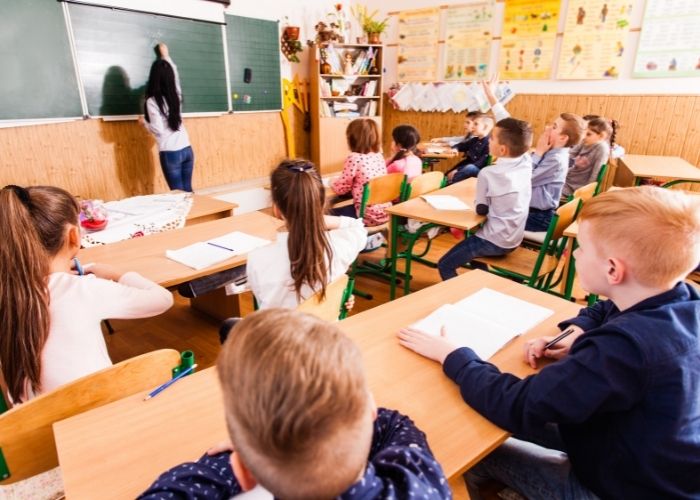MADRID – Spanish students who choose religion classes at school will be confronted with topics such as gender equality and environmental protection from the next academic year. The bishops are pursuing a new, progressive curriculum.
In recent decades, the school subject of religion has been a regular subject of political discussion. Spanish schools are required to offer religion as an elective, but the way they do so varies depending on the education law in effect at the time. From adjusting the lesson duration to whether or not the subject counts for the average grade. With each new ruling party, changes take place in the education law and with it also religious education at school.
New curriculum
The government has a lot to say about the preconditions of the profession, but not about the content. The curriculum has been determined by the Spanish Bishops’ Conference since 1995. Following the new Education Act, they presented a draft curriculum for the coming years. In this concept, they set new learning objectives for the pupils of kindergarten (infantil), primary education (primaria), and secondary education (ESO).
It is remarkable that the new plan does not follow the doctrine of the faith. It focuses on personal development, which they link to modern and current themes. For example, the plan is written from an inclusive perspective, and attention is paid to sustainable behaviour.
Personal development and social responsibility
The bishops propose that from the new school year onward, pre-schoolers should achieve effective learning goals during the subject. “Young children should be able to discover, develop and express their personal identity” reads the plan. `
For children in primary education, on the other hand, the new curriculum focuses on social responsibility. The curriculum includes new norms and values relating to ‘an inclusive society, healthy lifestyles and sustainable consumption’.
Social responsibility also forms the basis of the subject in secondary education. Various social problems such as exclusion, poverty, injustice, and inequality between men and women are addressed and discussed in the new curriculum. In this way, they want to “make sure that similar situations do not happen again and hope to achieve the common good, pursued in the Gospel.”
Fewer students
This change of course has not been used for anything. Last school year, 60% of all Spanish students attended religion classes in school compared to 63% the year before. Although the Spanish Episcopal Conference attributes this decline to the corona pandemic and the uncertainty brought about by the introduction of the new education law, they hope to make the subject more attractive with a more progressive curriculum. The draft curriculum was made public for consultation this week and will be finalised later this year.


